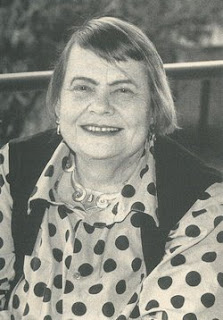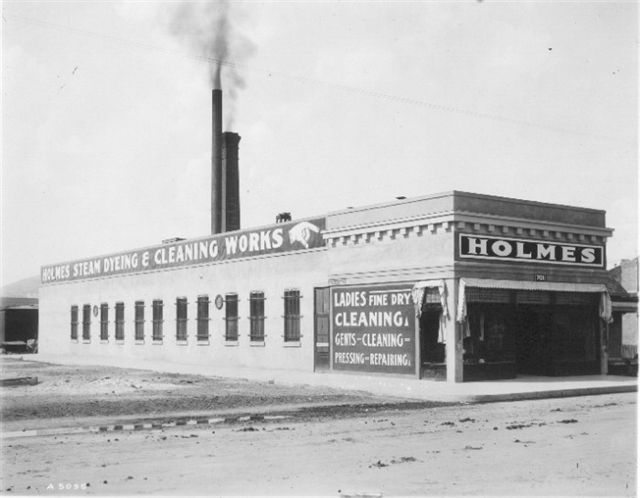LaVerne Harrell Clark, 1929-2008

Monday morning we received a short note from our friend L.D. Clark. His wife LaVerne Harrell Clark died the evening before (Feb 24, 2008) in her growing-up home on Main Street in Smithville, Texas. Besides being a fellow writer, LaVerne was an old-style family person. She wanted to know about our children and grandchildren, all the little bits and pieces of news. It was always an honor to be included in her legendary and very encyclopedic Christmas Newsletters.
 I first met the Clarks in 1964 when LaVerne served as the Director of the Ruth Stephan Poetry Center at the University of Arizona. I was a lonely 21-year-old kid who wanted to be a poet. L.D., a novelist and D.H. Lawrence scholar, was a professor in the English Department. LaVerne was an immediate friend, one of those strong pieces of cord that has moved in and out of my life since then. She was a remarkable ethnographer and folklorist, photographer and novelist. Cinco Puntos Press was proud to publish her novel Keepers of the Earth, a tale about a Texas family which is torn apart because of oil and land. In that novel LaVerne was able to enlist her many talents and deep insight of rural east Texas. We also published L.D.’s equally fine novel A Bright Tragic Thing, A Tale of Civil War Texas.
I first met the Clarks in 1964 when LaVerne served as the Director of the Ruth Stephan Poetry Center at the University of Arizona. I was a lonely 21-year-old kid who wanted to be a poet. L.D., a novelist and D.H. Lawrence scholar, was a professor in the English Department. LaVerne was an immediate friend, one of those strong pieces of cord that has moved in and out of my life since then. She was a remarkable ethnographer and folklorist, photographer and novelist. Cinco Puntos Press was proud to publish her novel Keepers of the Earth, a tale about a Texas family which is torn apart because of oil and land. In that novel LaVerne was able to enlist her many talents and deep insight of rural east Texas. We also published L.D.’s equally fine novel A Bright Tragic Thing, A Tale of Civil War Texas.
 In my heart, LaVerne and L.D. were bookends to a generous love and intellectual affection for the old and traditional parts of our culture. As a couple, they could be fun-loving and cantankerous at the same time. For these many years, they were integral to Southwestern literature from Arizona and New Mexico to Texas. From their days in Tucson, they counted among their friends Byrd Baylor, Keith and Heloise Wilson, Barney Childs, Drummond Hadley, Diana Hadley, Jill and Joe Somoza, Larry Goodell, Paul Malanga and so many others. Added to this are their Texas friends, Texas relatives, the widening circles of writers, ethnographers, historians—this is a huge list of people, who, I’m sure, might want to add them comments about LaVerne here. Please be our guest.
In my heart, LaVerne and L.D. were bookends to a generous love and intellectual affection for the old and traditional parts of our culture. As a couple, they could be fun-loving and cantankerous at the same time. For these many years, they were integral to Southwestern literature from Arizona and New Mexico to Texas. From their days in Tucson, they counted among their friends Byrd Baylor, Keith and Heloise Wilson, Barney Childs, Drummond Hadley, Diana Hadley, Jill and Joe Somoza, Larry Goodell, Paul Malanga and so many others. Added to this are their Texas friends, Texas relatives, the widening circles of writers, ethnographers, historians—this is a huge list of people, who, I’m sure, might want to add them comments about LaVerne here. Please be our guest.
LaVerne loved to sit around at parties and talk and laugh and tell old stories. She had a wonderfully loud and raucous laugh. One night at Joe and Jill Somoza’s house in Las Cruces, L.D. pulled out his beautiful Spanish guitar. I didn’t know it at the time, but besides being a fine novelist, he is a remarkable guitarist with a nice tenor voice. He started singing songs—Mexican songs, Spanish songs, old country and western songs. It was fun. We all sang along when we could. Toward the end of the evening he sang the c&w version of “Help me through the night,” the Willie Nelson version. L.D., a Ph.D. and scholar of English Literature, was more of a stickler for correct pronunciation than LaVerne. Although he too was raised up in rural Texas, he simply couldn’t put the proper twang to the word “help.”
“L.D., damnit,” she kept hooting, “it’s not ‘help me through the night.’ It’s ‘hep me thru the night.’ Don’t you hear me? It’s ‘hep me thru the night.’” We all laughed and L.D. kept playing and singing.
Take the ribbon from your hair, Shake it loose and let it fall,
Layin' soft upon my skin. Like the shadows on the wall.
Come and lay down by my side till the early morning light
All I'm takin' is your time. Help me make it through the night.
I don't care what's right or wrong, I don't try to understand.
Let the devil take tomorrow. Lord, tonight I need a friend.
Yesterday is dead and gone and tomorrow's out of sight.
And it's sad to be alone. Help me make it through the night.
I don't care what's right or wrong, (Yes, I do !)
I don't try to understand.
Let the devil take tomorrow. Lord, tonight I need a friend.
Yesterday is dead and gone and tomorrow's out of sight.
Lord, it's bad to be alone. Help me make it through the night
We send you off with much love, LaVerne Harrell Clark.
 I first met the Clarks in 1964 when LaVerne served as the Director of the Ruth Stephan Poetry Center at the University of Arizona. I was a lonely 21-year-old kid who wanted to be a poet. L.D., a novelist and D.H. Lawrence scholar, was a professor in the English Department. LaVerne was an immediate friend, one of those strong pieces of cord that has moved in and out of my life since then. She was a remarkable ethnographer and folklorist, photographer and novelist. Cinco Puntos Press was proud to publish her novel Keepers of the Earth, a tale about a Texas family which is torn apart because of oil and land. In that novel LaVerne was able to enlist her many talents and deep insight of rural east Texas. We also published L.D.’s equally fine novel A Bright Tragic Thing, A Tale of Civil War Texas.
I first met the Clarks in 1964 when LaVerne served as the Director of the Ruth Stephan Poetry Center at the University of Arizona. I was a lonely 21-year-old kid who wanted to be a poet. L.D., a novelist and D.H. Lawrence scholar, was a professor in the English Department. LaVerne was an immediate friend, one of those strong pieces of cord that has moved in and out of my life since then. She was a remarkable ethnographer and folklorist, photographer and novelist. Cinco Puntos Press was proud to publish her novel Keepers of the Earth, a tale about a Texas family which is torn apart because of oil and land. In that novel LaVerne was able to enlist her many talents and deep insight of rural east Texas. We also published L.D.’s equally fine novel A Bright Tragic Thing, A Tale of Civil War Texas.  In my heart, LaVerne and L.D. were bookends to a generous love and intellectual affection for the old and traditional parts of our culture. As a couple, they could be fun-loving and cantankerous at the same time. For these many years, they were integral to Southwestern literature from Arizona and New Mexico to Texas. From their days in Tucson, they counted among their friends Byrd Baylor, Keith and Heloise Wilson, Barney Childs, Drummond Hadley, Diana Hadley, Jill and Joe Somoza, Larry Goodell, Paul Malanga and so many others. Added to this are their Texas friends, Texas relatives, the widening circles of writers, ethnographers, historians—this is a huge list of people, who, I’m sure, might want to add them comments about LaVerne here. Please be our guest.
In my heart, LaVerne and L.D. were bookends to a generous love and intellectual affection for the old and traditional parts of our culture. As a couple, they could be fun-loving and cantankerous at the same time. For these many years, they were integral to Southwestern literature from Arizona and New Mexico to Texas. From their days in Tucson, they counted among their friends Byrd Baylor, Keith and Heloise Wilson, Barney Childs, Drummond Hadley, Diana Hadley, Jill and Joe Somoza, Larry Goodell, Paul Malanga and so many others. Added to this are their Texas friends, Texas relatives, the widening circles of writers, ethnographers, historians—this is a huge list of people, who, I’m sure, might want to add them comments about LaVerne here. Please be our guest.LaVerne loved to sit around at parties and talk and laugh and tell old stories. She had a wonderfully loud and raucous laugh. One night at Joe and Jill Somoza’s house in Las Cruces, L.D. pulled out his beautiful Spanish guitar. I didn’t know it at the time, but besides being a fine novelist, he is a remarkable guitarist with a nice tenor voice. He started singing songs—Mexican songs, Spanish songs, old country and western songs. It was fun. We all sang along when we could. Toward the end of the evening he sang the c&w version of “Help me through the night,” the Willie Nelson version. L.D., a Ph.D. and scholar of English Literature, was more of a stickler for correct pronunciation than LaVerne. Although he too was raised up in rural Texas, he simply couldn’t put the proper twang to the word “help.”
“L.D., damnit,” she kept hooting, “it’s not ‘help me through the night.’ It’s ‘hep me thru the night.’ Don’t you hear me? It’s ‘hep me thru the night.’” We all laughed and L.D. kept playing and singing.
Take the ribbon from your hair, Shake it loose and let it fall,
Layin' soft upon my skin. Like the shadows on the wall.
Come and lay down by my side till the early morning light
All I'm takin' is your time. Help me make it through the night.
I don't care what's right or wrong, I don't try to understand.
Let the devil take tomorrow. Lord, tonight I need a friend.
Yesterday is dead and gone and tomorrow's out of sight.
And it's sad to be alone. Help me make it through the night.
I don't care what's right or wrong, (Yes, I do !)
I don't try to understand.
Let the devil take tomorrow. Lord, tonight I need a friend.
Yesterday is dead and gone and tomorrow's out of sight.
Lord, it's bad to be alone. Help me make it through the night
We send you off with much love, LaVerne Harrell Clark.
.JPG)

Comments